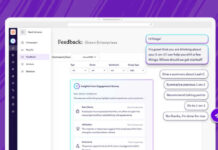
 It’s not news that nobody really likes performance reviews, whether they’re employees, managers, or HR staffers. Over the last few years, people have begun to do more than grumble about the issue by trying out new approaches, such as PricewaterhouseCooper’s “real-time” performance management, or implementing programs where feedback is given on a more frequent basis.
It’s not news that nobody really likes performance reviews, whether they’re employees, managers, or HR staffers. Over the last few years, people have begun to do more than grumble about the issue by trying out new approaches, such as PricewaterhouseCooper’s “real-time” performance management, or implementing programs where feedback is given on a more frequent basis.
It’s not a small problem. As Carol Patton reports in HRE Online, Willis Towers Watson’s 2016 Global Workforce Study found less than half of employees believe performance reviews help improve their work, while just 54 percent believe their performance is evaluated accurately. Forty-hour percent see a clear link between pay and performance, HRE reported, while only 51 percent believe people are held accountable for their performance.
Of course, a number of both new and proposed approaches rely on technology to work. HRE notes, “Some HR consultants believe that, for such programs to effectively work, more HR professionals need to leverage technology so that every part of this process — from gathering feedback to analyzing employee data — is streamlined, objective and current.”
Don’t Forget the Human Element
Asumi Ishibashi, a senior consultant for talent management at Willis Towers Watson in Toronto, told HRE that technology won’t replace managers “in delivering the right employee experience.” Technology, she said, can help by gathering feedback from clients or customers, deliver feedback as soon as an assignment is completed and generally balance “balances where the feedback comes, the frequency and cadence.” Eventually, it could also help match an employee’s current strengths to future opportunities.
The question, though, isn’t about the technology’s capabilities or its potential to extend the use of performance data into other areas, such as workforce planning. What both HR, technology and business leaders need to think about is how they’re going to integrate the technology’s use into the employee’s and manager’s workday. Tech experts will focus their message on developing consumer-grade services that neatly integrate into an organization’s HCM systems, but it’s not hard to imagine line managers and executives balking at investing time, and dollars, into training all parties so that performance-review technology provides its intended value.
As Meghan Biro observed on TalentCulture, “It’s important to remember that real-time feedback isn’t just a matter of adding new apps to your processes; it also requires a shift in mindset. An organization can’t just talk about change; it has to show their employees a commitment to change.”
How well your program works will be demonstrated by melding metrics from HR with those from other functions. For example, does a manager’s time spent on performance reviews correlate with an increase in their department’s productivity? Has the money invested in a review system resulted in an increase in sales? Whatever role technology plays, it’s not going to be a plug-and-play solution that provides immediate benefits. To get the most out of performance management technology, businesses must prepare themselves for an organization-wide, long-term effort that melds their best efforts in management training, cultural integration and technology deployment. Otherwise, they’ll just waste time and money as they maintain the status quo.
Copyright: rawpixel / 123RF Stock Photo















